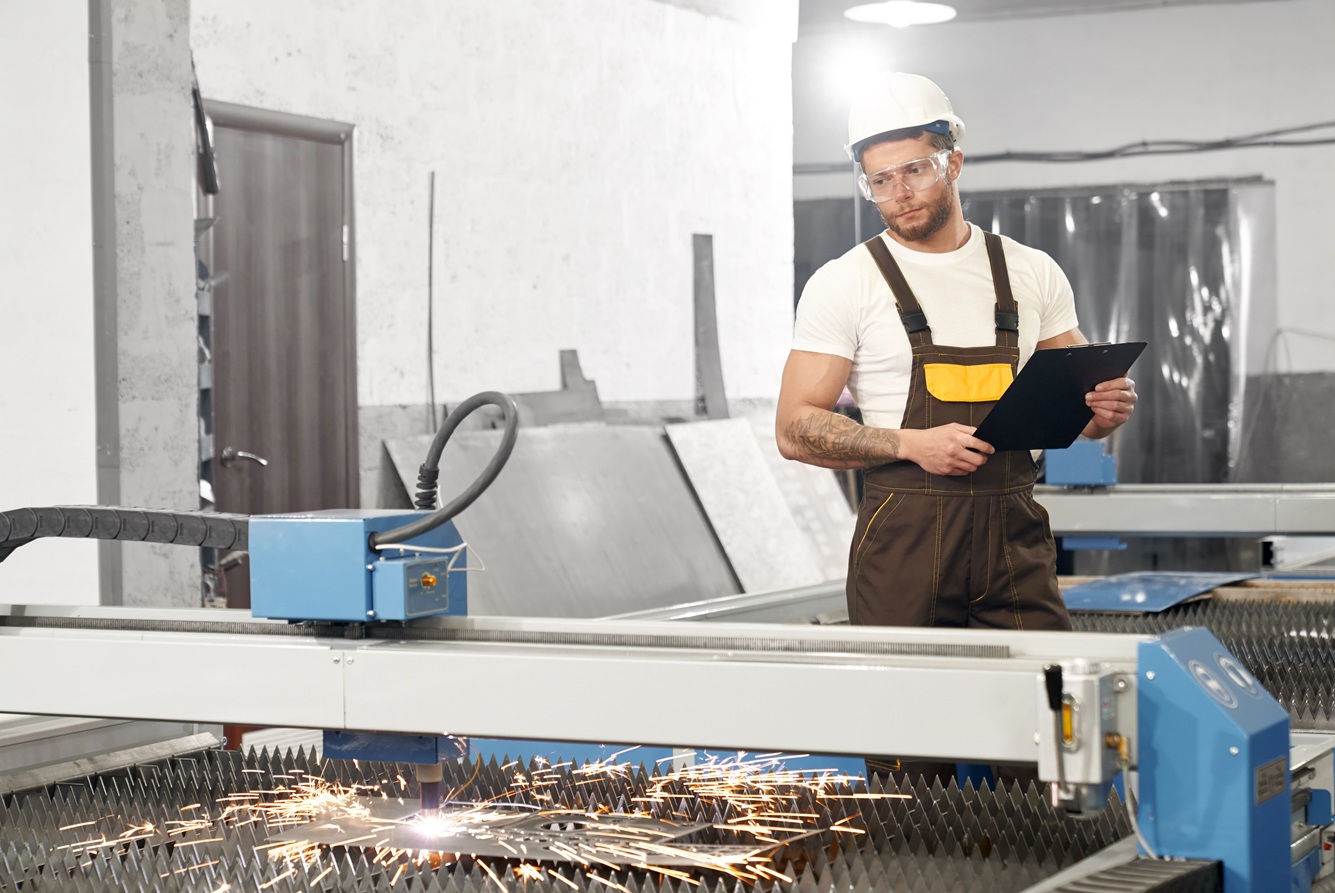

Sheet metal processing encompasses various techniques and methods, including metal notching, punching, and drilling. Metal notching is the process of removing small sections from the corners and edges of the sheet metal.
It necessitates the use of right sheet metal notching machines. When discussing sheet metal notchers, hydraulic sheet metal notchers often come out as the best choice, but what are the advantages of using a hydraulic metal notcher? How does it compare to other machines, and what are its applications across the different industries?
This blog answers every question you might have concerning hydraulic sheet metal notchers.
Read on!
A hydraulic sheet metal notching machine uses hydraulic power to deliver quick, clean notches on various metals. It requires minimal effort compared to manual notchers. Also, manual notchers are limited to notching thin sheets. On the other hand, a hydraulic notching machine applies consistent pressure, making it ideal for repeated operations and tougher materials.
These machines are designed to cut clean notches into sheet metal, usually in preset angles, making them extremely useful in precision-driven industries.
Investing in a hydraulic metal notcher can dramatically improve productivity and precision. Its multiple benefits include:
Increased Efficiency: Hydraulic systems are faster than manual or mechanical tools, thus increasing operational efficiency.
Consistent Accuracy: These machines are known for their precision, delivering accurate cuts every time, reducing the need for rework.
Versatility: Due to their immense power, they are suitable for various metals and thicknesses.
Reduced Operator Fatigue: Unlike manual notching tools, these machines put less physical strain on the operators.
Durability: Built for long-term industrial use, these machines offer reliability for high-volume tasks.
When used in conjunction with hydraulic metal punching, these machines can significantly improve workflow.
Sheet metal notching is crucial in transforming sheet metal into finished products. Thus, the use of a sheet metal notcher spans many industries:
HVAC: It is used in creating precise duct joints and corner notches.
Automotive: It is used in crafting parts with detailed cutouts for assembly.
Electrical Enclosures: These are used for punching holes and notches in panels and chassis.
Construction: It is used in shaping brackets, beams, and supports.
Aerospace: It is used in high-precision notching of lightweight alloys.
It is not an exhaustive list of industries where the use of a hydraulic sheet metal notcher is essential. Due to the many benefits as discussed above, it is preferred over its manual and mechanical counterparts.
Before you invest in a hydraulic sheet metal notcher, it is important to determine your needs and compare multiple notching tools to make the right decision.
Here is how a hydraulic notcher compares with other tools:
Speed: A manual notcher is the slowest. While a mechanical notcher offers moderate speed, it cannot beat the speed of a hydraulic notcher.
Force: Hydraulic machines apply high pressure and force to notch the sheet metal, whereas a manual notcher requires the operator to perform the same task.
Application: A manual notcher is ideal for occasional notching work. A mechanical notching tool is used for light industrial work. Lastly, a hydraulic notcher is perfect for high-volume, precise, and tough material work.
Considering the various advantages of hydraulic sheet metal notchers, they seem like the best tool for high-quality sheet metal notching. However, you must consider the following factors before you make a decision:
Project Volume: The investment in a hydraulic notcher is justified when you have high-volume production needs. It is not for occasional use.
Material Types: Before investing, ensure that the notcher supports the metals you frequently work with.
Space & Setup: Hydraulic machines are larger; make sure your workspace can accommodate one.
Operator Skill: Despite user-friendly controls, operator training remains crucial.
Maintenance Needs: Periodic servicing is crucial for maintaining precision and ensuring safety.
For industrial needs, a hydraulic notcher is the best choice, as the initial costs can be easily balanced over a short period.
For professionals working on multiple projects who require constant metal notching, a hydraulic notcher is the best investment. However, for DIYers and small businesses, outsourcing the operation to a professional, such as New Mexico Metals LLC, is often a more feasible option.
We proudly serve both businesses and individuals, offering the best notching services in Albuquerque. Not only metal notching, but we also provide metal bending, drilling, sawing, and other related services.
For more information, contact us today!
_____________________________________